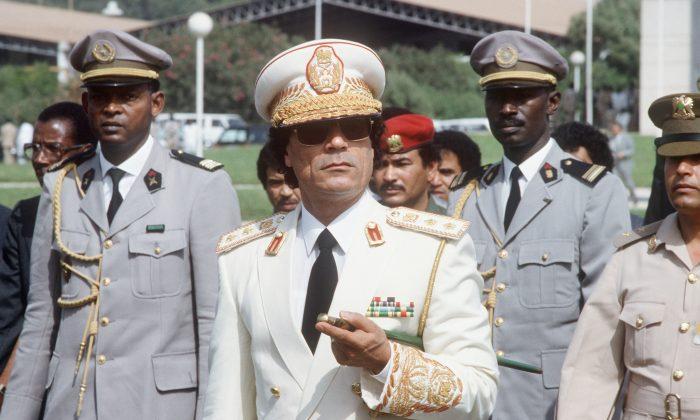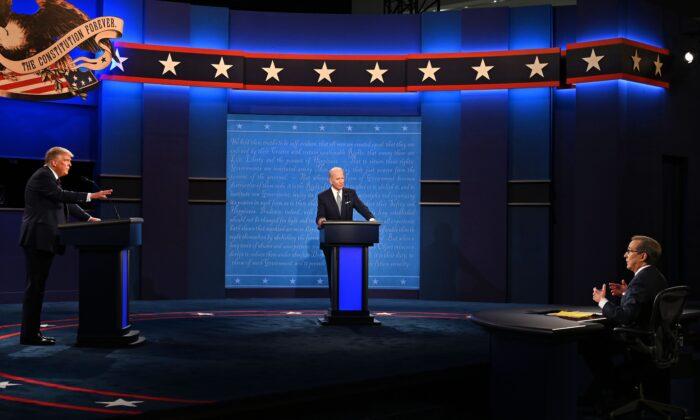FBI files released Tuesday show the agency investigated whether former Libyan dictator Moammar Gadhafi put out a contract to assassinate President Ronald Reagan.
The declassified documents total 207 pages—although most of the content is redacted—and date from 1976 to 1989.
They reveal that the FBI’s Chicago office was contacted on Feb. 22, 1989, by a person saying he or she had information that “Quadhafy [also spelled Gadhafi] has put out contract on the life of former U.S. President Ronald Regan [sic].”
The FBI telephoned the Secret Service officials on the same day to relay the information, and opened a case.
The source was then “extensively interviewed” by an FBI agent and a U.S. Secret Service agent as described in an FBI file dated Feb. 23, 1989.
“Our friend in the east wants to talk with Reagan,” the source said. When asked to explain the remarks, the source said that “friend in the east,” referred to Gadhafi, and “wants to talk to Reagan” meant Gadhafi wants to kill Reagan.
However, after the interview, agents concluded that the source was “exaggerating.” The documents state that the two agents had “noted numerous inconsistencies in … statements while the interview took place.”
The same document contains information referring to the indictment and conviction of five members of the Chicago street gang The El Rukns. The members were convicted between 1986–1987 of planning terrorist attacks in the United States on behalf of the Libyan authorities in exchange for money.
While the documents show that the FBI, much like anyone else, had trouble spelling Gadhafi’s name consistently—with variations such as Khadafi, Khaddafy, Gaddafi, and Qadhafi, appearing in the documents—little groundbreaking revelations can be found in the heavily redacted documents.
The documents make no reference to the Lockerbie Bombing, in which a New York-bound Boeing 747 operated by Pan Am was destroyed by an explosive device while flying over Lockerbie, Scotland, on Dec. 21, 1988. Gadhafi is believed to have ordered the bombing.
The documents do include an extensive number of pages with the subject matter “Libyan dissident plans to overthrow Libyan leader,” but the content is heavily redacted.
Gadhafi was in power for 42 years—It was not until 2011 that the Arab Spring uprising that spread through the region saw the end to his rule when he was killed by rebels.
Some of the documents do provide more information about security measures taken by U.S. agencies, such as the Secret Service, CIA, and Department of State, and the FBI to “insure [sic] the personal safety of Qadhafi and his party” during his visit to the United States For the United Nations General Assembly in 1985.
One of the documents raises a question about a communication regarding females accompanying Gadhafi on his travels to the United States.
“In addition we are unable to decipher last paragraph of your message concerning names of the Libyan females accompanying Qadhafi family. We do know however, that Qadhafi’s personal body guards, as reported in the media, are women,” reads a document dated Oct. 18, 1985.
The documents also shed some light on the close relationship between Gadhafi and the former Soviet Union (USSR). The documents show that Gadhafi planned to go to Moscow on invitation by Mikhail Gorbachev, former General Secretary of the Communist Party of the Soviet Union, to sign a treaty of ‘friendship and cooperation.’
According to the FBI document dated July 2, 1985, “Qadhafi’s invitation from Moscow and the prospect of the treaty signing indicate the Kremlin sees some value in Qadhafi’s openly hostile anti-U.S. activities.”





Friends Read Free